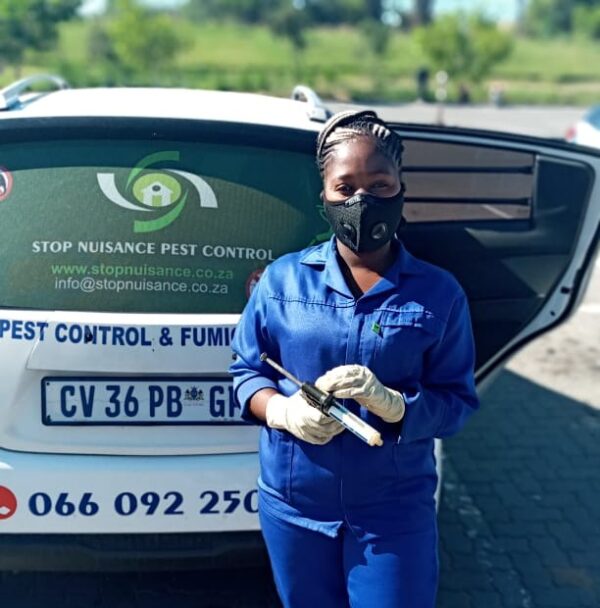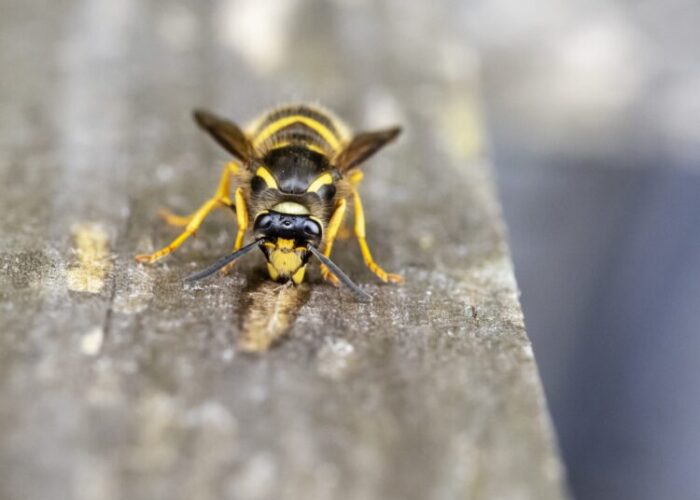Wasps are a type of insect in the Hymenoptera order, which also includes ants and bees. They are well-known for their stinging ability, which may be painful and dangerous at times.
Nonetheless, there is a widespread misperception that wasps are always aggressive and uninterested. This article will investigate if wasps are curious and give light on their behavior.
Table of Contents
What are Wasps?
Wasps are a varied group of insects, with over 30,000 species documented globally. Their slim bodies, narrow waists, and two pairs of wings distinguish them.
Wasps can live in groups or alone, and their colors range from iridescent blue to yellow and black stripes. Paper wasps, hornets, and yellow jackets are examples of common wasps.
Curiosity in Wasps
Curiosity is described as an intense want to understand or know something. Although it is commonly linked with animals and birds, current research has revealed that insects such as bees and ants can also exhibit unusual behavior.
See also Does Soapy Water Kill Wasps?
Wasps are no exception, and researchers have discovered evidence that they, too, are interested.
According to a study published in the Journal of Insect Science, paper wasps engaged in exploratory behavior and spent time studying their environment. They were witnessed touching and manipulating objects with their antennae, indicating a desire to understand their surroundings.
Reasons for Wasps’ Curiosity:
Wasps, like many other animals, have a natural need to investigate their surroundings. There are, however, certain reasons why wasps may exhibit unusual behavior.
Wasps are predatory insects that prey on other insects, spiders, and occasionally nectar. To find food, they must explore their surroundings and identify suitable prey. This might result in curious behavior as they explore their environment for possible food sources.
Yellow jackets and paper wasps, for example, establish nests to raise their young. They may investigate their surroundings in search of suitable nesting places and building materials. This can result in inquisitive behavior as they seek potential areas and gather items.
Wasps are also territorial, defending their nests from intruders. They must explore their environment and identify potential threats in order to protect their territory. As they assess potential threats to their territory, this might lead to curious behavior.
See also What Family is a Wasp in? [See Here]
Curiosity’s Role in Wasp Life
Curiosity is important in wasps’ lives because it helps them adapt and survive in their environment. It is also essential for their reproduction.
Wasps use curiosity to discover prospective food sources and recognize potential hazards. This enables them to adapt to and live in their environment, which is critical for survival.
Curiosity is also important in wasp reproduction. Female wasps look for good nesting areas and gather materials to construct their nests. They must also investigate their environment in order to find potential partners. This helps them to breed and secure their species’ survival.
Is Curiosity Dangerous?
While wasps’ curiosity is natural, it can also be deadly, especially if they feel threatened or irritated. Wasps are known for their ferocity and will aggressively protect their nests if they feel threatened. This can result in painful stings and, in extreme situations, anaphylaxis, or a severe allergic reaction.
Safety precautions
It is critical to take precautions to avoid being stung by curious wasps. Avoid provocation and rapid movements that can excite wasps when interacting with them. Wear protective clothing if necessary, such as long-sleeved shirts and slacks, and use insect repellents. If you have a wasp infestation in your home, get a professional to properly remove the nest.
See also How to Get Rid of Wasp Nest in Roof – Easy DIY!
How to Handle Curious Wasps?
There are numerous precautions you can take if you come across curious wasps. To begin, avoid provocation and abrupt movements that may upset them. Second, apply bug repellents to keep them away from you.
Finally, if you have a wasp infestation in your home, get professional assistance because successfully removing the nest takes specific equipment and training.
ALSO: Can a Wasp Sting You if You hold Your Breath?
FAQs:
Q: Are wasps all sociable insects?
No, some wasp species live alone and do not establish colonies.
Is it possible for wasps to identify human faces?
A: No, wasps are not capable of recognizing human faces.
Q: What should I do if a wasp stings me?
A: To minimize swelling, wash the affected area with soap and water and apply a cold compress. Get medical attention right away if you suffer symptoms such as trouble breathing.
Wasps live for how long?
A: Wasp lifespan varies according to species, although most survive for a few weeks to a few months.
Q: Can wasps be good for the environment?
A: Wasps do serve an important part in pest control since they prey on other insects, which helps to limit their population.
Conclusion:
In conclusion, wasps are inquisitive insects that investigate their surroundings in order to find food, create nests, and protect their territory. Curiosity is critical to their survival and reproduction. While curious wasps can be hazardous if provoked, adopting precautions can help you handle them securely.

With over 5+ years of experience in pest control and a PhD in Entomology, our author brings a blend of scientific knowledge and practical expertise to Pestifier.com. Passionate about creating pest-free environments, they provide effective tips and strategies for managing and preventing pest infestations. Connect on Facebook for the latest updates and insights.

